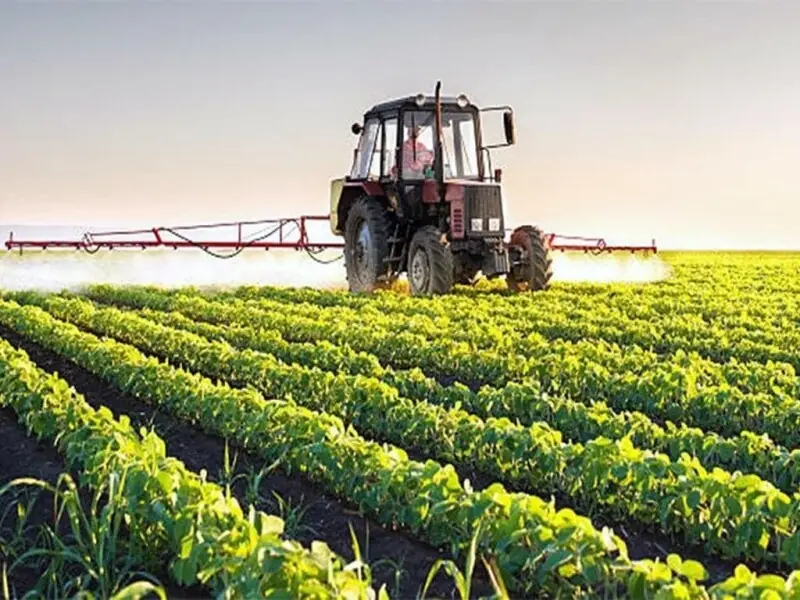Copyright brecorder

Pakistan’s agriculture sector stands at a critical juncture, where food loss, climate vulnerability, and digital transformation intersect. Amid these challenges, the School of Economics, Quaid-i-Azam University (QAU) hosted the 6th International Applied Economics Conference, themed “Bridging Gaps: Strategies for Food Loss Mitigation,” on October 22–23, 2025, in Islamabad. The two-day event jointly organized with the Australian Centre for International Agricultural Research (ACIAR) and several partner universities gathered an inspiring mix of policymakers, scholars, and students to deliberate on strategies for reducing agricultural losses, wastage and strengthening Pakistan’s food security. The first day took place at the National Agricultural Research Centre (NARC), while the second day convened at the School of Economics Conference Hall, QAU, Islamabad. Learning from experience, not donating for applause Representing ACIAR, Mr. Kazmi clarified a fundamental distinction: “We are not a donor agency; we are a learning organization.” He noted that ACIAR routinely revisits projects even a decade after completion to evaluate their lasting effects on farming communities. This approach, he stressed, transforms agricultural aid into adaptive learning turning evidence into evolution. The project, involving Quaid-i-Azam University, PMAS Arid Agriculture University Rawalpindi, Bahauddin Zakariya University (BZU) Multan, Islamic International University Islamabad (IIUI), and the Pakistan Agricultural Research Council (PARC), was led by Associate Professor Dr. Anwar Shah of the School of Economics, QAU. His leadership and vision have been central to linking academic research with ground-level realities. Technology adoption: turning risk into resilience Dr. Manan Aslam, representing currently School of Management, Jiangsu University, P.R. China presented his paper titled “Determinants of ICTs Adoption for Minimizing Agricultural Losses Among Smallholder Farmers in Punjab, Pakistan: Implications for Food Security and Sustainable Rural Development.” He argued that technology adoption transforms risk into resilience, enabling smallholders to anticipate crises rather than merely react to them. He was deeply honoured to receive the Best Presentation Award and a cash prize for his work, an encouraging recognition of its policy relevance and analytical depth. The award reflected the growing importance of digital transformation research in reshaping Pakistan’s agricultural policy discourse. Gender perspectives and inclusive innovation The conference also featured powerful conversations on inclusion and equity. Dr. Aisha Anees Malik from the Centre of Excellence in Gender Studies, QAU, led a memorable session on gender and agricultural innovation, emphasizing the crucial yet often invisible role of women in post-harvest management and household-level sustainability. Her call for gender-responsive ICT interventions resonated strongly with participants. Similarly, Associate Professor Dr. Aneela Afzal, from PMAS Arid Agriculture University, shared practical insights on institutional capacity-building and how gender-inclusive climate adaptation strategies in South Asia can drive change by empowering local communities. Acknowledging collaborative excellence Behind the conference’s success stood an energetic team of organizers and volunteers. Dr. Anwar Shah, as project leader, guided the initiative with academic rigor and vision. Dr. Fatima from the School of Economics managed the operational details seamlessly, ensuring that the event ran flawlessly from session scheduling to logistics. Students were at the heart of the event’s execution. Mr. Sami Ullah, a PhD scholar, and undergraduate students Amjad and Hasnain Mir displayed exceptional professionalism, handling accommodation, transportation, and participant coordination with precision. Their teamwork mirrored the collaborative spirit that the conference itself celebrated. The attendance from representative from Ministry of National Food Security and Research and Senate of Pakistan, underscored the government’s seriousness in tackling post-harvest losses. Insights from academia and leadership In his closing address, Dr. Zafar Nawaz Jaspal, Dean of the Faculty of Social Sciences, QAU, commended the participants and highlighted the need for multi-disciplinary collaboration. He emphasized that economic reasoning, behavioural science, and technological innovation must come together to build a more adaptable and sustainable agricultural food system. His remarks captured the conference’s underlying ethos: that bridging research and practice is essential to converting Pakistan’s food losses into productive value chains. Toward a sustainable food future The 6th International Applied Economics Conference was not just an academic gathering it was a call to action. The event demonstrated that innovation, inclusion, and learning must work hand in hand to transform Pakistan’s food systems from waste to wealth. As Pakistan confronts rising food insecurity and climate pressures, the integration of ICTs offers new hope. By digitizing agriculture, strengthening gender participation, and embedding continuous learning into policy, the country can move toward a food-secure and climate-resilient future. The spirit of collaboration that defined this conference between local universities, global partners, and young scholars reflects a promising direction for Pakistan’s agricultural development. As ACIAR’s philosophy reminds us, progress is not achieved through funding alone but through learning, reflection, and shared purpose. The conference concluded on a note of optimism, with renewed commitment among researchers, practitioners, and policymakers to continue building bridges between research and reality, between policy and practice, and ultimately, between loss and sustainability. Copyright Business Recorder, 2025



